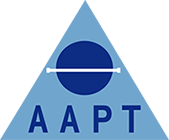News
Congratulations to Kate Cannon RSci FAAPT
Kate Cannon has become the latest APT to achieve Science Council registration and provides insight into the process

What motivated you to apply for Registered Scientist status, and how did you decide it was the right time in your career?
I was motivated to apply for professional registration because I wanted to be formally recognised for my knowledge, skills, and the professional standards that I have developed throughout my career.
Recently my role has changed into a more leadership based role, and I now have more responsibility, greater autonomy, and more involvement in service development. Achieving my registration felt like a natural next step that would validate this progression and demonstrate my commitment to maintaining high professional standards.
How did you find the overall application process — from gathering evidence to submitting your portfolio?
Honestly, I found the application process to be challenging. It took me a long time to identify audience appropriate examples that demonstrated not only my competence but also enabled me to demonstrate the amount of experience, skills and responsibility that I have developed over my career.
Did you find the guidance and resources provided by AAPT and the Science Council useful? How could they be improved?
I found the information provided by both the AAPT and the Science Council to be really useful. There was lots of information that helped me to understand the structure of the competency profile and the types of evidence required. However, some of the information provided by the Science Council felt quite high-level, and I would have found it more useful to have more APT specific examples.
Were there any aspects of the application that made you reflect differently on your role or skills as a healthcare or science professional?
The application process helped me to see my role clearer.
It reaffirmed for me that the work of APT’s is not only compassionate and empathetic but also scientific, highly technical, and highly skilled. It was a reminder of not only my professional abilities but also the value that we, as APT’s bring to the Pathology service.
How has achieving RSci status impacted your career, confidence, or recognition among peers?
Achieving my professional registration has encouraged me to think more about my future career and I feel that I now have more recognition from higher management which has led to more meaningful conversations about my professional development, leadership, and the scope of my role within the service.
Having professional registration is allowing me to actively seek out development opportunities to further widen my job scope.
What advice would you give to someone considering applying for RSci, especially if they’re unsure about their eligibility or evidence?
My advice would be to approach the application with an open mind, it looks daunting when you first read through it but with advice and support you will get through it.
It can feel like you don’t have enough experiences to complete each competency but once you start listing your examples, you will realise how much experience you actually have.
Take the time to read the guidance and attend the webinars that the Science Council provide. Speaking to other APT’s who have been through the process can also be really helpful, as they can help you identify evidence you may not see as useful.
